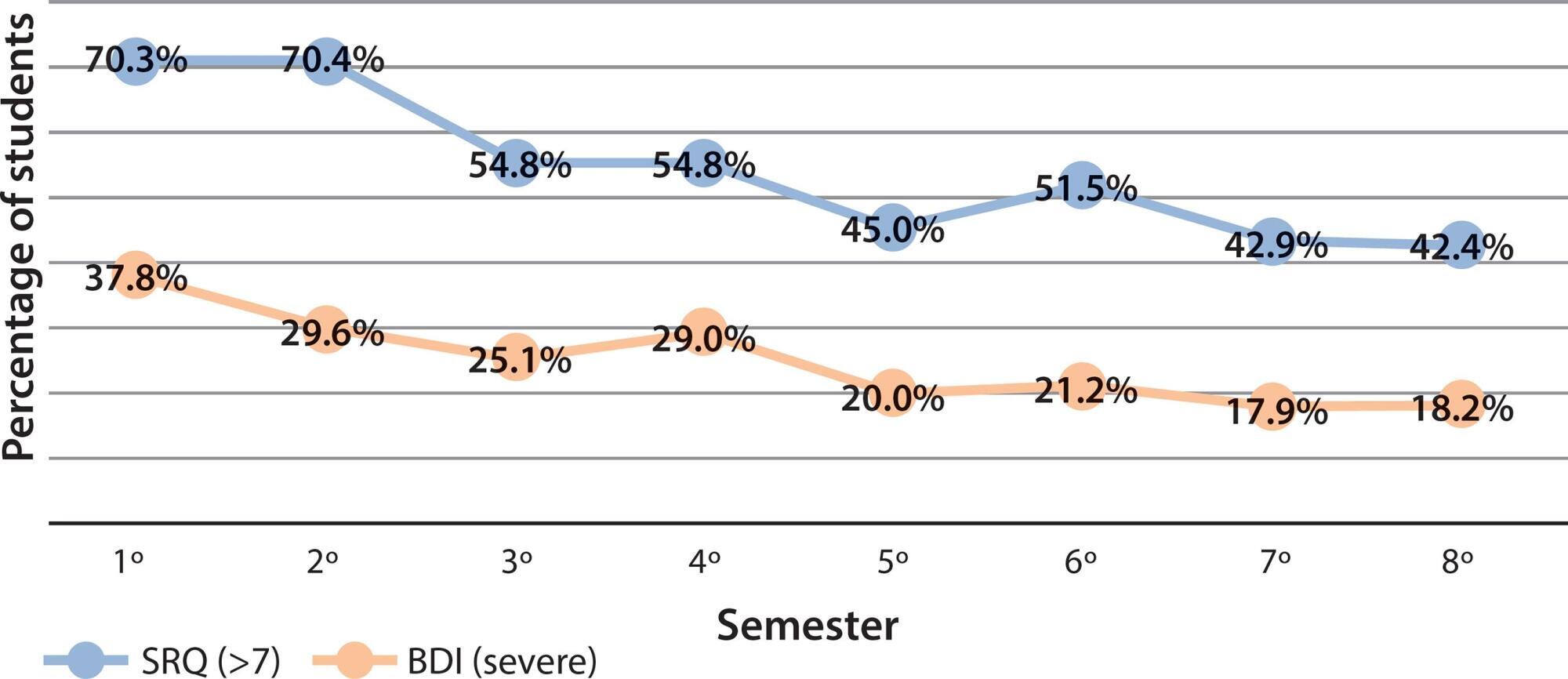-
ORIGINAL ARTICLE
Factors related to psychological impairment and quality of life in patients with schizophrenia
Revista Brasileira de Enfermagem. 2021;74(5):e20190060
07-28-2021
Resumo
ORIGINAL ARTICLEFactors related to psychological impairment and quality of life in patients with schizophrenia
Revista Brasileira de Enfermagem. 2021;74(5):e20190060
07-28-2021DOI 10.1590/0034-7167-2019-0060
Visualizações0Ver maisABSTRACT
Objective:
to describe the factors related to psychological impairment and quality of life (QoL) of patients with schizophrenia.
Method:
a cross-sectional, descriptive and correlational study, carried out with 119 schizophrenics. A questionnaire of sociodemographic and clinical variables was applied, plus BPRS-A and QLS-BR scales. Chi-square test and Spearman’s correlation were used,
Results:
seventy-seven were male and 44 were using typical medications. The “Number of times they were hospitalized” related to “Time of illness” that patients live with schizophrenia showed significance (p=0.266); 91.7% had a severe occupational level (n=109); 34.5% (n=41) had moderate impairment.
Conclusion:
the greater the degree of psychological impairment, the worse the QoL, this worsening may be related to several factors, as well as disease symptoms.
-
ORIGINAL ARTICLE
Quality of life, depressive and minor psychiatrics symptoms in nursing students
Revista Brasileira de Enfermagem. 2020;73(Suppl 1):e20190134
07-10-2020
Resumo
ORIGINAL ARTICLEQuality of life, depressive and minor psychiatrics symptoms in nursing students
Revista Brasileira de Enfermagem. 2020;73(Suppl 1):e20190134
07-10-2020DOI 10.1590/0034-7167-2019-0134
Visualizações0Ver maisABSTRACT
Objective:
To assess quality of life, prevalence of depressive and minor psychiatric symptoms in Nursing students.
Methods:
Cross-sectional study, conducted from March to April 2018, at a federal university. Sample composed of 242 Nursing students, from the 1st to the 8th semester. Data was collected using the quality of life instruments, Beck Depression Inventory and Self-Report Questionnaire. A significance level of 0.05 was considered.
Results:
The mean age was 22.9 ± 5.1 years. It was found that 25% of the students had severe depressive symptoms and 54% of the students had minor psychiatric disorders, with a higher prevalence in the first semesters. An inverse relationship was observed between the frequency of depressive symptoms and quality of life scores (p = 0.05).
Conclusion:
Nursing students showed a high prevalence of depressive symptoms, indicating the importance of implementing actions to promote and prevent mental health.




